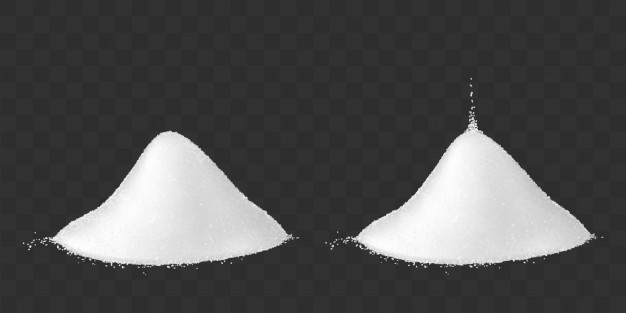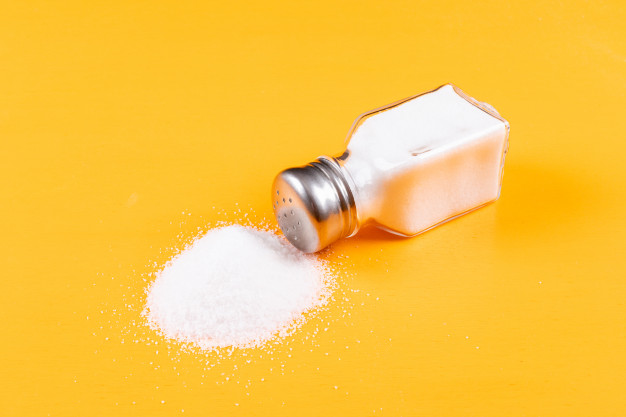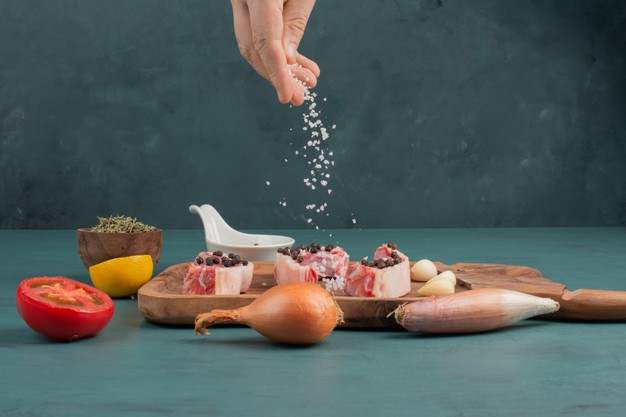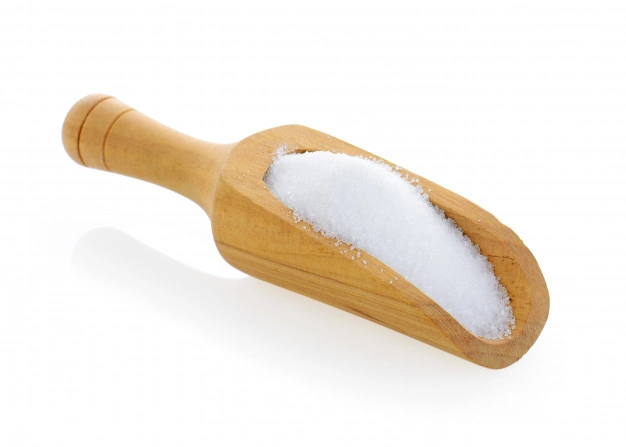Sodium is an important trace element that plays various important roles in body. We generally consume sodium as salt but it also found naturally in foods. Though sodium offers numerous health benefits but excessive consumption of sodium is not wise as it may cause various health hazards.
Guidelines of World Health Organization (WHO)
- According to WHO, reduced salt intake has been recognized as one of the most cost effective measures that can be implemented for improving the health outcomes of overall population
- As per the recommendation of WHO consumption of salt less than 5 g per day (for adults) significantly reduces the prevalence of hypertension, coronary artery disease and strokes
- WHO also estimates that about 2.5 million deaths can be prevented yearly if the global consumption of salts are decreased (www.who.int)
Risk group
Individual who suffer from cardiovascular diseases, hypertension, hepatic disorders, renal disorders and obesity are considered as at risk condition and they should restrict their daily sodium intake for improving their health status.

Benefits of consuming low sodium diet
Role on reducing blood pressure
- Restricting sodium intake is extremely useful for reducing high blood pressure thus individual who have hypertension or who are at risk condition should consume low sodium diet
- It has seen that consumption of low sodium diet is associated with regulating the amount of water in blood, which helps to maintain normal blood pressure
- It is very effective for reducing both the systolic and diastolic pressure

Role on preventing cancer
- It has seen that high salt intake is closely related with increasing the risk of developing stomach cancer. Prolong consumption of high salt diet is responsible for damaging the mucosal lining of stomach and also stimulates the growth of H. Pylori bacteria, which ultimately increases the risk of inflammation as well as ulceration
- Consumption of low sodium diet significantly reduces the risk of stomach cancer
Role on cardio vascular health
- Reduced consumption of salt is related with decreasing hypertension, which ultimately helps to prevent cardiac damages
- Prolong hypertension is also responsible for making the artery harder and thicker thus makes the vessel stiff and hinders blood flow thus it is better to consume sodium as per recommendation for avoiding all of these complications and low sodium diet also helps the heart to pump blood effectively
- It has seen that consumption of low sodium diet helps to decrease the susceptibility of ischemic heart diseases, heart attacks and strokes
- It also helps to prevent congestive heart failure
Role on renal health

- Renal disorders are responsible for providing a negative impact on renal functions
- We know that kidney helps to control sodium level in body but poor renal functions may lead to sodium retention and fluid accumulation as kidney becomes unable to remove excess water and sodium. High level of fluid and sodium may increase blood pressure and also cause further damages to renal system
- It is better for renal patients to consume low sodium diet as it helps to improve their symptoms and also decreases hypertension and urinary protein excretion
- It has seen that consumption of low sodium diet also decreases the susceptibility of developing kidney stones
Role on nervous system
- Consumption of low sodium diet is extremely beneficial for promoting the health and activity of brain as high sodium diet is responsible for increasing hypertension. Prolong hypertension is accountable for weakening the blood vessels of brain and may lead to brain aneurysm. Brain aneurysm can cause bleeding into the brain and increases the risk of hemorrhagic stroke
- High blood pressure is also associated with reducing blood flow to the brain and eventually develops vascular dementia that hinders the normal functionality of brain
- It has seen that proper brain functioning is very much important for improving memory, cognition as well as thinking ability thus it is better to consume a healthy diet with recommended sodium intake for promoting overall brain’s function

Role on hepatic health
- Individual with hepatic disorders often experience hypertension, which ultimately increases the risk of ascites (accumulation of fluid in abdomen) that eventually worsen their hepatic functionality
- Individual who suffer from cirrhosis or other hepatic diseases should consume low sodium diet for reducing the risk of developing ascities

Role on eye health
- It has seen that high blood pressure is accountable for destroying the blood vessels in eye that ultimately causes severe damage even vision loss
- As the consumption of low sodium diet is associated with reducing hypertension thus it is better to restrict sodium intake for preventing vision loss
Other health benefits
- Helps to maintain electrolyte balance
- Helps to make bones stronger by regulating calcium level in body
- Helps to improve the symptoms of hyperglycemia as well
List of foods, which are low in sodium

Foods which contain less amount of sodium are listed below –
- Fresh fruits like apple, apricot, pear, papaya etc
- Fresh vegetables especially starchy vegetables like potatoes or sweet potatoes, green leafy vegetables and other vegetables like parsnips, peppers, broccoli, cauliflower etc
- Frozen vegetables without adding sauce
- Low sodium salad dressing
- Low sodium condiments
- Unsalted nuts
- Yogurt
- Low fat milk or skimmed milk or toned milk
- Unsalted butter
- Low sodium cheese
- Pea nuts
- Popcorn especially unsalted popcorn
- Pumpkin seed
- Beans
- Lentils
- Low sodium grains like brown rice, whole wheat, oat, grits, shredded wheat, sorghum, bajra, breads etc
- Frozen fish or fresh fish like cod, tuna, salmon, snapper and halibut
- Egg white
- Chicken
- Turkey
- Avocado oil
- Olive oil
- Herbs and spices
Individuals who want to consume low sodium diet should include all the above mentioned foods in their diet
Foods that should be excluded from diet
To consume a low sodium diet one should exclude the below listed foods from diet as they are high in sodium –
- Frozen meats
- Processed meat like sausage, salami, hot dog, bacon and lunch meats etc
- Canned vegetables
- Salty snacks such as chips, salted crackers, salted pretzels, salted nuts etc
- Frozen pizza
- Packaged soup or canned soup
- Salted butter
- Butter milk
- Cottage cheese
- Cheese sauce
- Macaroni
- Commercial tomato sauce
- Soy sauce
- Salsa
- Sauerkraut
- Pickle
- Fast foods like fish finger, chicken finger, cutlets, burger, pizza, meat rolls etc
- Salted baked foods like salted bagels, salted rolls, crackers, croutons etc
- Salted and canned fish
- Packaged or canned soup

General tips of preparing low sodium palatable diet
Preparation of foods with less amount of salt is responsible for reducing the palatability of a diet as it has no significant taste thus it is better to prepare foods in different ways for improving palatability
Below points will provide various ways that help to make a food relatively delicious while avoiding salt –
- Lemon juice can be used as an effective substitute of salt
- It is better to cook foods with herbs rather than salts
- Spices can be used while preparing foods
- Olive oil and citrus juice can be used for salad dressing
- It is better to consume homemade soup and the soup can be flavored with herbs and garlic
- Low sodium marinades can be prepared with garlic, vinegar, ginger, olive oil and honey and it can be used for preparing meat or fish preparations


Source:
Carbone, L.D., Barrow, K.D., Bush, A.J., Boatright, M.D., Michelson, J.A., Pitts, K.A., Pintea, V.N., Kang, A.H. and Watsky, M.A., 2005. Effects of a low sodium diet on bone metabolism. Journal of bone and mineral metabolism, 23(6), pp.506-513.
Hernandez, A.V., Emonds, E.E., Chen, B.A., Zavala-Loayza, A.J., Thota, P., Pasupuleti, V., Roman, Y.M., Bernabe-Ortiz, A. and Miranda, J.J., 2019. Effect of low-sodium salt substitutes on blood pressure, detected hypertension, stroke and mortality: A systematic review and meta-analysis of randomised controlled trials. Heart, 105(12), pp.953-960.
Konerman, M.C. and Hummel, S.L., 2014. Sodium restriction in heart failure: benefit or harm?. Current treatment options in cardiovascular medicine, 16(2), p.286.
McDonough, A.A., Veiras, L.C., Guevara, C.A. and Ralph, D.L., 2017. Cardiovascular benefits associated with higher dietary K+ vs. lower dietary Na+: evidence from population and mechanistic studies. American Journal of Physiology-Endocrinology and Metabolism, 312(4), pp.E348-E356.
O’Donnell, M., Mente, A. and Yusuf, S., 2015. Sodium intake and cardiovascular health. Circulation research, 116(6), pp.1046-1057.
Svetkey, L.P., Simons‐Morton, D.G., Proschan, M.A., Sacks, F.M., Conlin, P.R., Harsha, D., Moore, T.J. and DASH‐Sodium Collaborative Research Group, 2004. Effect of the dietary approaches to stop hypertension diet and reduced sodium intake on blood pressure control. The Journal of Clinical Hypertension, 6(7), pp.373-381.


